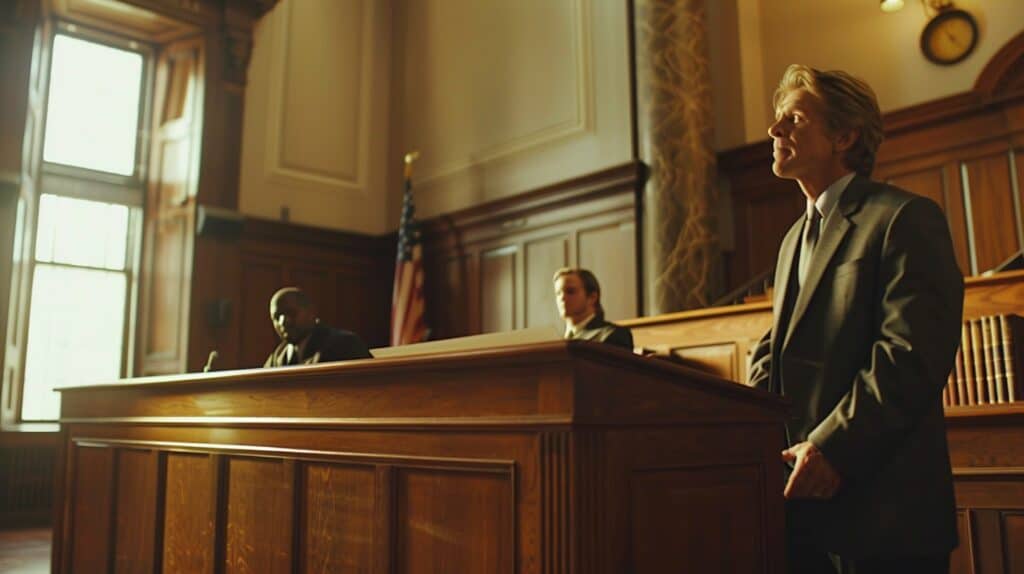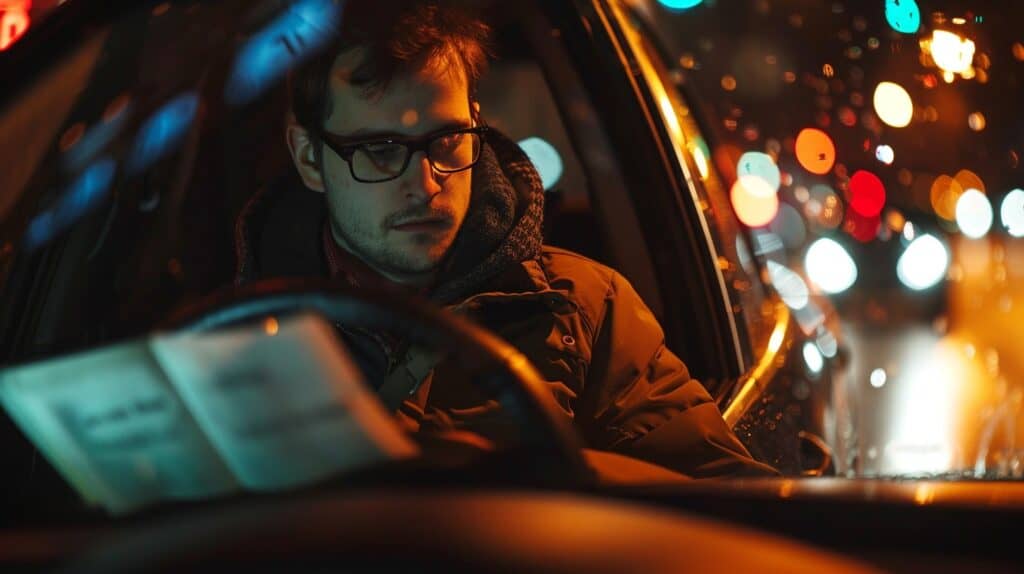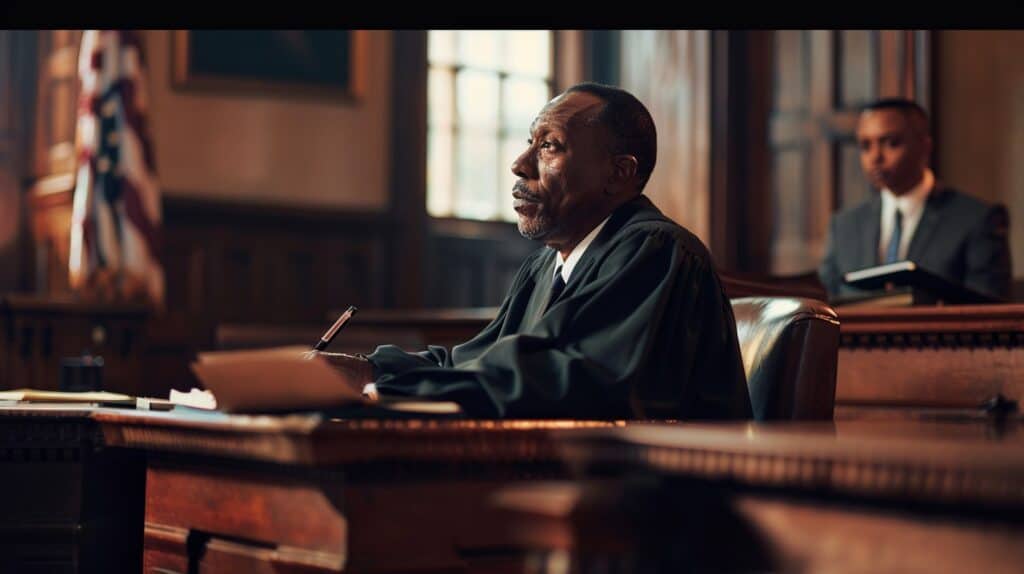Getting a traffic ticket can feel like a major setback. Police officers often issue tickets for unsafe driving behaviors, like risky lane changes. This article gives you 5 solid strategies to possibly get out of a traffic ticket.
Keep reading to learn how.
Key Takeaways
Learn traffic laws and know what counts as a violation. This helps you understand if the ticket was fair or not.
Fight your ticket by challenging the officer’s judgment or evidence in court. Use photos, witness statements, and other proof to show your side.
Some actions, like avoiding an accident, can justify breaking a rule. Show why you needed to break the law to keep safe.
Avoid weak defenses like saying you didn’t know the law or looking for small mistakes on the ticket.
Talking to a traffic lawyer is smart if the ticket could cause big problems for you. Lawyers know how to fight tickets well.
Table of Contents
Navigate Traffic Laws and Recognize Violations

Learning the traffic laws is key. Oregon and Georgia have their own rules for handling traffic tickets. For example, in Oregon, you must respond to a ticket within ten business days.
Knowing these details ensures you don’t miss deadlines that could make things worse. Recognizing what counts as a violation helps too – speeding, running a red light, or not stopping at stop signs are clear no-nos.
I once got pulled over for speeding because I missed seeing a speed limit sign change. This experience taught me always to keep an eye out for those signs and other markers like stoplights and right-of-way signs at intersections.
Being aware of these basic laws makes it easier to spot when you might be in the wrong, or even when an officer’s claim doesn’t add up with what actually happened.
Effective Tactics to Contest a Traffic Ticket

Fighting a traffic ticket might seem hard, but some tricks can help. You can question the officer’s take or show why you had to act a certain way—each approach needs strong evidence and clear talking in court.
Dispute the Officer’s Subjective Judgment
Dispute the officer’s personal view on what happened. Often, officers give tickets based on their opinion about things like unsafe turns or lane changes. You can challenge this in court.
Bring evidence like photos, maps, or even dash cam videos to show your side of the story. Also, if there were witnesses who saw what happened, ask them to come with you.
Next is challenging the proof the officer brings forward…
Challenge the Evidence Presented by the Officer
Look at the officer’s proof closely. They might say you ran a stop sign or made an illegal U-turn. You can ask for photos, videos, or radar logbooks that show what happened. Sometimes, officers use their own judgment to decide if someone broke the law.
But in court, they need solid proof.
Talk to a Louisiana traffic ticket lawyer if this sounds tough. They know how to ask the right questions and find holes in the officer’s evidence. For example, maybe the stop sign was hidden by a tree or the U-turn spot had no clear signs saying it was illegal.
Your lawyer will make these points clear in court, helping you fight your ticket with facts and confidence.
Demonstrate a ‘Mistake of Fact’
To win in court, show the violation was a ‘mistake of fact.’ This means proving you broke traffic rules because you misunderstood something you saw or knew. For example, speeding because a sign was hidden by trees.
I did this once and got my ticket dismissed by showing photos of the blocked sign to the judge.
Next, explain why your actions were right due to the situation.
Justify Your Actions Based on Circumstances
Sometimes, the reason you were speeding or broke a rule was because of something urgent. You might have been trying to avoid a car accident. It’s key to show how this case made it necessary for you to act the way you did.
For instance, if avoiding a collision meant crossing a solid line briefly, that’s what needed to happen.
If your actions prevented harm and followed traffic laws as closely as possible under those conditions, point this out in court.
Evidence helps here too. Photos from the scene or statements from witnesses can back up your story. The goal is to make it clear: given the situation, any safe driver would have done the same thing.
Claim Actions Were Necessary to Avoid Harm
You got pulled over for speeding, but had a good reason. The law allows you to argue necessity defense if your action prevented harm. Say, dodging an animal on the road or avoiding a crash, which made speeding the safer choice.
Judges listen to these reasons if you bring evidence—like dash-cam footage.
Next, focus on poor defense strategies that could hurt your case more than help.
Poor Defense Strategies to Avoid

Fighting a traffic ticket demands smart strategies. Not all defenses work, and some can make things worse. Here are bad moves to steer clear of:
- Saying you didn’t know the law won’t help. Courts expect drivers to know traffic rules.
- Looking for tiny errors on the ticket usually fails. Judges often ignore small mistakes.
- Pretending there was an emergency when there wasn’t is risky. If caught lying, you could face more trouble.
- Arguing with the officer during the traffic stop does not set a good scene for court.
I learned these points not just by reading but through a friend’s own traffic court saga. He tried claiming he didn’t see the speed limit sign—didn’t work.
Next, let’s talk about when it might be time to call in a pro—a traffic ticket lawyer.
When to Seek Advice from a Traffic Ticket Lawyer

Seek advice from a traffic ticket lawyer if your ticket might bump up your insurance rates or risk losing your license. Keep in mind, lawyers specializing in traffic violations often give free first meetings.
This fact is crucial for weighing options without spending extra money. Oregon law demands you act on a traffic citation within 10 days—mark this deadline seriously. A skilled attorney can guide through this tight timeframe, ensuring you respond correctly and on time.
Legal help turns the scales in your favor when contesting traffic tickets.
Traffic attorneys understand complex rules and have strategies to lessen penalties or dismiss charges altogether. They deal with prosecutors and courts daily, which boosts chances of a favorable outcome for you—the driver.
It’s wise to consult them early, especially before making decisions like pleading guilty or opting for self-representation at trial.
FAQs About How to Get Out of a Traffic Ticket
What’s a quick way to beat a speeding ticket?
Plead not guilty and request a trial. You might get acquitted if the officer doesn’t show up, or you prove your speed was safe.
Can I just pay my traffic ticket without going to court?
Yes, but paying means you plead guilty. It could raise your auto insurance rates… Consider fighting it instead.
Do I need a lawyer for a traffic ticket?
Not always, but… A traffic ticket attorney knows how to argue against tickets or find mistakes in the process that can help you.
Is there any chance to reduce my punishment without pleading guilty?
Sure! Look into plea deals or ask for driving school instead of points on your license—courts often agree.
How do jury trials work with speeding tickets?
You can demand one—a jury of peers decides if you’re guilty beyond reasonable doubt. It’s more effort, but sometimes worth it.
What happens if I ignore my traffic ticket?
Bad idea! You could get a bench warrant for your arrest, higher fines… even lose your driver’s license.




